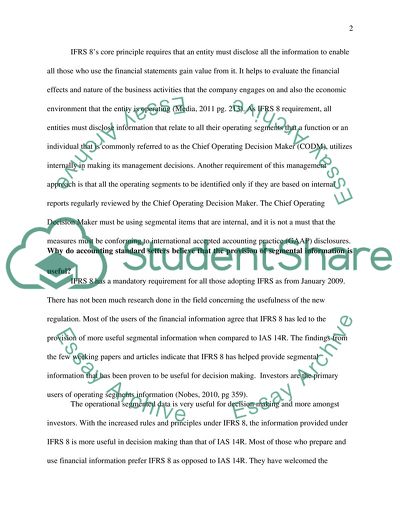Cite this document
(Do the requirements of IFRS 8 Operating Segments enhance the quality Essay - 1, n.d.)
Do the requirements of IFRS 8 Operating Segments enhance the quality Essay - 1. https://studentshare.org/finance-accounting/1851027-do-the-requirements-of-ifrs-8-operating-segments-enhance-the-quality-of-information-available-to-financial-statement-users
Do the requirements of IFRS 8 Operating Segments enhance the quality Essay - 1. https://studentshare.org/finance-accounting/1851027-do-the-requirements-of-ifrs-8-operating-segments-enhance-the-quality-of-information-available-to-financial-statement-users
(Do the Requirements of IFRS 8 Operating Segments Enhance the Quality Essay - 1)
Do the Requirements of IFRS 8 Operating Segments Enhance the Quality Essay - 1. https://studentshare.org/finance-accounting/1851027-do-the-requirements-of-ifrs-8-operating-segments-enhance-the-quality-of-information-available-to-financial-statement-users.
Do the Requirements of IFRS 8 Operating Segments Enhance the Quality Essay - 1. https://studentshare.org/finance-accounting/1851027-do-the-requirements-of-ifrs-8-operating-segments-enhance-the-quality-of-information-available-to-financial-statement-users.
“Do the Requirements of IFRS 8 Operating Segments Enhance the Quality Essay - 1”. https://studentshare.org/finance-accounting/1851027-do-the-requirements-of-ifrs-8-operating-segments-enhance-the-quality-of-information-available-to-financial-statement-users.


